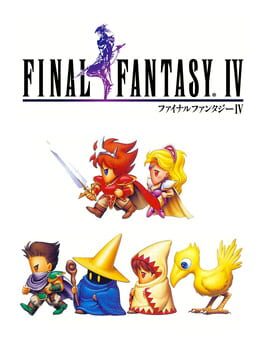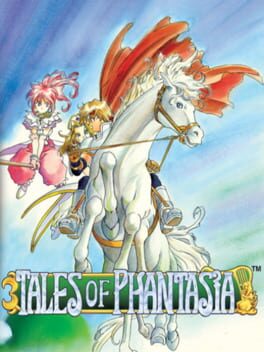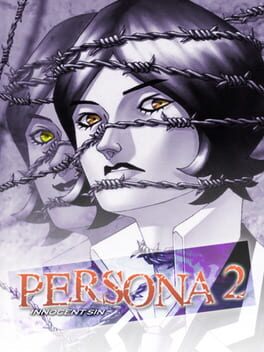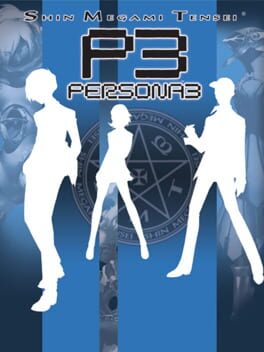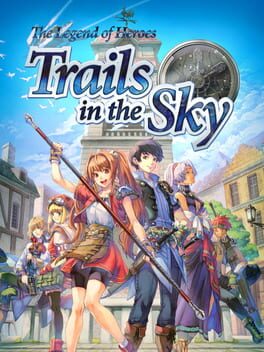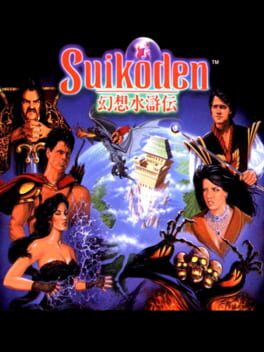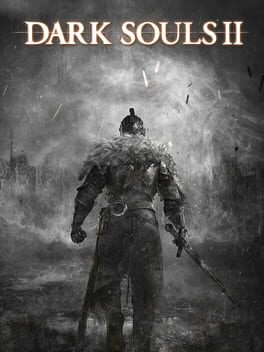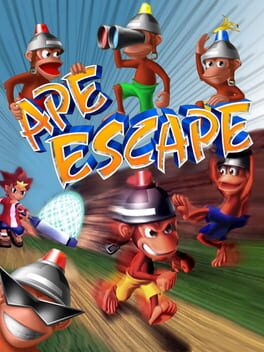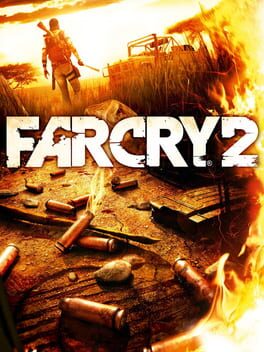Meditations
yeah
Random old point-form thoughts on random games, divided between topics I neglected to mention in my reviews and half-finished blurbs.
disclaimer: many of these claims are probably (likely) dead wrong
Random old point-form thoughts on random games, divided between topics I neglected to mention in my reviews and half-finished blurbs.
disclaimer: many of these claims are probably (likely) dead wrong
18 Games
- dragon quest's and final fantasy's 4th installments could be the games that began their genre's metamorphosis from the hero idolization of its early days to the more party-focused paradigm of '94 onwards. until then, jrpg plots mainly concerned a (often silent, nameable) protagonist and their exploits.
- mostly, the backstory/personalities of your allies were fleshed out (however little) as they're introduced and during the process of recruitment. afterwards, they give next to no input on current matters, and often had no effect on the main story apart from helping the hero in combat.
- dqiv's 'omnibus' narrative (of four chapters starring different allies, later compiled into a full party for the hero's chapter) formalized an idea that jrpgs would explore over the next few decades: from the multilayered routes of trials of mana to the hyper-eclectic, 'free' scenarios of saga frontier, from closely-inspired (long or short) variants such as live a live, suikoden III, wild arms 3 and growlanser V, all the way to 2013's octopath traveler.
- on the other hand, their 'role' in the genre's evolution could also be viewed like this: by isolating each story, their format emphasized above all the individual's journey, and therefore represented the first nail in the coffin for the classic era; a showcase of personal conflicts that laid the foundations for a new, more party-balanced approach to jrpg storytelling.
- ffiv - instead, contains a few instances of character spotlight (rydia, palom & porom, kain, etc.) but suffered from 2 things: the constantly rotating cast (with members appearing and disappearing frequently) left little room to fully appreciate their actions, and that many of its subplots revolve around the main protagonist: the love triangle, the redemption arc and the evil brother plotline cast cecil as the star of the show. so while it may represent an early move towards fleshed out, distinct character subplots/identities, ffiv was ultimately still bound to old jrpg values (the same is roughly true for ys and lunar as well)
- for all its advances to jrpg storytelling, ffiv remains a transitional work imo. A step towards the direction future generations would take - undoubtedly, but a very small one at that.
- mostly, the backstory/personalities of your allies were fleshed out (however little) as they're introduced and during the process of recruitment. afterwards, they give next to no input on current matters, and often had no effect on the main story apart from helping the hero in combat.
- dqiv's 'omnibus' narrative (of four chapters starring different allies, later compiled into a full party for the hero's chapter) formalized an idea that jrpgs would explore over the next few decades: from the multilayered routes of trials of mana to the hyper-eclectic, 'free' scenarios of saga frontier, from closely-inspired (long or short) variants such as live a live, suikoden III, wild arms 3 and growlanser V, all the way to 2013's octopath traveler.
- on the other hand, their 'role' in the genre's evolution could also be viewed like this: by isolating each story, their format emphasized above all the individual's journey, and therefore represented the first nail in the coffin for the classic era; a showcase of personal conflicts that laid the foundations for a new, more party-balanced approach to jrpg storytelling.
- ffiv - instead, contains a few instances of character spotlight (rydia, palom & porom, kain, etc.) but suffered from 2 things: the constantly rotating cast (with members appearing and disappearing frequently) left little room to fully appreciate their actions, and that many of its subplots revolve around the main protagonist: the love triangle, the redemption arc and the evil brother plotline cast cecil as the star of the show. so while it may represent an early move towards fleshed out, distinct character subplots/identities, ffiv was ultimately still bound to old jrpg values (the same is roughly true for ys and lunar as well)
- for all its advances to jrpg storytelling, ffiv remains a transitional work imo. A step towards the direction future generations would take - undoubtedly, but a very small one at that.
- while several games from '91 to '94 were already headed in that direction (final fantasy iv, shining force II, secret of mana and phantasy star iv had their own brief forms of character development and backstory, although the former loosely translates to 'make a character disappear for half the game'), the party-centric model fully bloomed in ffvi, whose roster (of 14) were largely given ample time to describe their own (personal, not communal) reasons for joining beyond saving the world or fighting a common enemy. contemporaries were quick to adopt that technique, and more scenes were devoted to ally backstories and subplots. jrpgs remained obsessed with hero figures (even ff7 had a central character), but after '94, the ideological balance had tilted from the value of one to the values of many.
- to further drive the point home, who's the protagonist of ffvi? one can make an argument for terra, celes, locke or edgar as the leader, but nobody seems to be the 'chosen one' destined to slay evildoers and save the world (quite the opposite, in fact: the world 'ends' halfway through, and defeating the antagonist didn't return it to normal, thus leaving the heroes prey to an uncertain, unfriendly future)
- to further drive the point home, who's the protagonist of ffvi? one can make an argument for terra, celes, locke or edgar as the leader, but nobody seems to be the 'chosen one' destined to slay evildoers and save the world (quite the opposite, in fact: the world 'ends' halfway through, and defeating the antagonist didn't return it to normal, thus leaving the heroes prey to an uncertain, unfriendly future)
- Chrono trigger perfected the lessons of ffvi by applying them to a more conventional medieval-fantasy tale (albeit augmented by time travel), and was fairly important in conceiving JRPGs as a 'moment-to-moment' experience (paving the way for the madcap carnival-esque romp of ffvii)
- Tales was emblematic of this kind of character-focused subject matter that came to dominate the post-FFVI era. Compared to the rest, their adventures often felt like road trips with good friends rather than heroic endeavors.
- persona 2: innocent sin doesn't get mentioned enough, but I believe it was very important in establishing another (and possibly more groundbreaking?) take on ffvi's ideology. while the protagonist is eventually revealed to harness some form of special power, their role in the game is neither a brave hero nor a hot-headed juvenile on a quest for revenge; but a spectator, a witness to the tragedies and anxieties of their allies.
- story-wise, the player often has little control over the actions of their teammates, but the important choices they can make are far from traditional. in a rare success of gameplay/narrative interaction, these choices fulfill both a symbolic function (e.g. refusing to step in and help party members in peril actually has a positive effect, by letting them discover their potential on their own, quite the contrast to the naive heroics of old) and a practical function (said decisions will give allies major upgrades later on).
- if ffvi proposed to abolish the central character and focus on the party as a whole, p2 retained the protagonist but starkly reduced their relevance in favor of their allies. p2 thus introduced a new, explicitly ally-centric form of jrpg, a style that was - in many ways, the exact opposite of how the genre started off. protagonists turned from single-minded conquerors and established personalities to VN self-inserts, a change which also altered the role of its party members, who largely became best buds, not just fellow soldiers or followers (note that the role of love interest didn't change much; in terms of wish-fulfillment, the two personalities are roughly identical).
- in a sense, this release completed the circle: the silent, faceless but resolute protagonist has returned, although to a completely different world this time, restrained and recast as a mere bystander
- story-wise, the player often has little control over the actions of their teammates, but the important choices they can make are far from traditional. in a rare success of gameplay/narrative interaction, these choices fulfill both a symbolic function (e.g. refusing to step in and help party members in peril actually has a positive effect, by letting them discover their potential on their own, quite the contrast to the naive heroics of old) and a practical function (said decisions will give allies major upgrades later on).
- if ffvi proposed to abolish the central character and focus on the party as a whole, p2 retained the protagonist but starkly reduced their relevance in favor of their allies. p2 thus introduced a new, explicitly ally-centric form of jrpg, a style that was - in many ways, the exact opposite of how the genre started off. protagonists turned from single-minded conquerors and established personalities to VN self-inserts, a change which also altered the role of its party members, who largely became best buds, not just fellow soldiers or followers (note that the role of love interest didn't change much; in terms of wish-fulfillment, the two personalities are roughly identical).
- in a sense, this release completed the circle: the silent, faceless but resolute protagonist has returned, although to a completely different world this time, restrained and recast as a mere bystander
- persona 3's social links turned persona 2's philosophy into a relationship-building mechanic, an idea that also (in various ways) introduced the VN/RPG crossover of rance and sakura wars to a new audience, standing out as one of the more influential concepts heading into the 7th generation.
- an understated, but nevertheless huge blessing for social links turned out to be p3's limited-time, linear calendar format, fostering different playthroughs of player-made 'routes' in a fashion similar to trials of mana: choices that yield different cameos, subplots and conversations within the same (main) storyline.
- whether intended or not, atlus ended up continuing Thousand Arms' operation on a deeper, more innovative and personal level
- an understated, but nevertheless huge blessing for social links turned out to be p3's limited-time, linear calendar format, fostering different playthroughs of player-made 'routes' in a fashion similar to trials of mana: choices that yield different cameos, subplots and conversations within the same (main) storyline.
- whether intended or not, atlus ended up continuing Thousand Arms' operation on a deeper, more innovative and personal level
- pokemon represents a strange parenthesis for classic-style jrpgs: the 'hero figure' is a child aiming to become the greatest pokemon trainer around; their role in the storyline is not necessarily to stop the antagonist (even if they eventually do so - directly or indirectly). stopping evildoers is therefore not as important as collecting gym badges, defeating the elite 4 and eventually the pokemon champion (the true final boss of these games). worldly conflicts - having lost that spotlight, must take a secondary role in this 'neo-idealist' JRPG adventure. The conflict itself isn't really meant to offer an original or well-made story, but to fabricate an identity for each instance of the same theme: striving to be the very best.
next topic:
- ffvii remains one of jrpgs' biggest misunderstandings, a game with the misfortune of being overwhelmingly loved (i personally blame marketing and nostalgia, older generations have done a great job making this work sound unappealing)
- far from a good ol' straightforward adventure, this is - instead, a jrpg 'collage' that gathers all sorts of genre stereotypes (both narratively and functionally) and presents it in a unique, disjointed, demented manner.
- what makes it so effective is not exactly the variety of moments but the almost complete lack of sense in the way they're sequenced and told
- this work simply does not care about when or where or how a moment should play out, it dishes a wild assortment of tropes and minigames that clash rather than flow from one to the next
- and yet these moments succeed in being totally memorable, despite (or precisely because of) this incongruous approach: there's no build-up, there's little to no logic behind them, and there's little to no greater thematic, symbolic or referential purpose (and the game falters whenever they try), just a messy series of high points, whether spectacular action or bizarre scenarios.
- lots of people are fooled by the more conventional minigames and storytelling devices of midgar, believing that this is the 'eat your vegetables' type of classic jrpg, before concluding that its popularity is a side-effect of an overly safe approach.
- it's the opposite in my case: I expected my appreciation of ffvii to wane as i familiarized myself with the genre, but it only grew. i've yet to play another jrpg with a CPR minigame that led to a boss fight against a tidal wave serpent monster, i've yet to play another jrpg that killed a character off only to feature a snowboarding minigame minutes later, i've yet to see another rivalry culminate with a slap fight on the wing of an airplane, etc.
- these minigames leave a more vivid impression because most of them occur in major story sequences rather than side quests
- the cast feel like caricatures as well; just look at how grossly exaggerated Cloud & Sephiroth are, from their hair to their weapons to their attitude. this is one of the few times that Nomura's character designs actually match the spirit of a game; over-the-top outfits for over-the-top personalities
- it's by far the dumbest jrpg i've ever played, which also means it's one of the most brilliant jrpgs i've ever played; a schizophrenic parody/celebration of jrpg excess.
- ffvii remains one of jrpgs' biggest misunderstandings, a game with the misfortune of being overwhelmingly loved (i personally blame marketing and nostalgia, older generations have done a great job making this work sound unappealing)
- far from a good ol' straightforward adventure, this is - instead, a jrpg 'collage' that gathers all sorts of genre stereotypes (both narratively and functionally) and presents it in a unique, disjointed, demented manner.
- what makes it so effective is not exactly the variety of moments but the almost complete lack of sense in the way they're sequenced and told
- this work simply does not care about when or where or how a moment should play out, it dishes a wild assortment of tropes and minigames that clash rather than flow from one to the next
- and yet these moments succeed in being totally memorable, despite (or precisely because of) this incongruous approach: there's no build-up, there's little to no logic behind them, and there's little to no greater thematic, symbolic or referential purpose (and the game falters whenever they try), just a messy series of high points, whether spectacular action or bizarre scenarios.
- lots of people are fooled by the more conventional minigames and storytelling devices of midgar, believing that this is the 'eat your vegetables' type of classic jrpg, before concluding that its popularity is a side-effect of an overly safe approach.
- it's the opposite in my case: I expected my appreciation of ffvii to wane as i familiarized myself with the genre, but it only grew. i've yet to play another jrpg with a CPR minigame that led to a boss fight against a tidal wave serpent monster, i've yet to play another jrpg that killed a character off only to feature a snowboarding minigame minutes later, i've yet to see another rivalry culminate with a slap fight on the wing of an airplane, etc.
- these minigames leave a more vivid impression because most of them occur in major story sequences rather than side quests
- the cast feel like caricatures as well; just look at how grossly exaggerated Cloud & Sephiroth are, from their hair to their weapons to their attitude. this is one of the few times that Nomura's character designs actually match the spirit of a game; over-the-top outfits for over-the-top personalities
- it's by far the dumbest jrpg i've ever played, which also means it's one of the most brilliant jrpgs i've ever played; a schizophrenic parody/celebration of jrpg excess.
next topic:
It dawned on me that the reason I prefer Trails FC over the rest is because it's so humble in comparison. Sure - you can attribute it to being the first part of the trilogy, and therefore story events haven't truly taken off yet. But in the beginning, Estelle basically says "dude, wheres my dad?" then grabs a friend and leaves. No tragic village burning, no edgelord setting off on a journey to stop the evil wizard (who's probably trying to awaken some ancient power sealed away for millennia) or anything like that, it's simple and quaint. Even the final boss is simultaneously reasonable (given what we've learned about its world so far) and otherworldly enough to be slightly terrifying, and is therefore so much more effective than the umpteenth iteration of a lovecraftian monster that's supposedly a metaphor for fascism. The story is nothing revolutionary - not surprising at all (it's a video game), but it feels so much more sincere compared to the melodrama that tends to sour many JRPGs.
It dawned on me that the reason I prefer Trails FC over the rest is because it's so humble in comparison. Sure - you can attribute it to being the first part of the trilogy, and therefore story events haven't truly taken off yet. But in the beginning, Estelle basically says "dude, wheres my dad?" then grabs a friend and leaves. No tragic village burning, no edgelord setting off on a journey to stop the evil wizard (who's probably trying to awaken some ancient power sealed away for millennia) or anything like that, it's simple and quaint. Even the final boss is simultaneously reasonable (given what we've learned about its world so far) and otherworldly enough to be slightly terrifying, and is therefore so much more effective than the umpteenth iteration of a lovecraftian monster that's supposedly a metaphor for fascism. The story is nothing revolutionary - not surprising at all (it's a video game), but it feels so much more sincere compared to the melodrama that tends to sour many JRPGs.
next topic:
- Suikoden's main merit was in reconciling two seemingly incompatible worlds: Between the 'old-school' (simple, naive but grand and - ultimately, heroic) spirit of JRPGs and its polar opposite, the politically-steeped, callous, diplomatic spirit of Matsuno-inspired TRPGs. In their hands, these opposing ideologies not only co-existed but even enhanced each other. Idealism still pervades the show, but its soul was beaten, fractured, tempered yet ultimately fueled by sheer grief, remaining hopeful despite all the trauma. The result had very few rivals in terms of emotional impact.
- Suikoden's main merit was in reconciling two seemingly incompatible worlds: Between the 'old-school' (simple, naive but grand and - ultimately, heroic) spirit of JRPGs and its polar opposite, the politically-steeped, callous, diplomatic spirit of Matsuno-inspired TRPGs. In their hands, these opposing ideologies not only co-existed but even enhanced each other. Idealism still pervades the show, but its soul was beaten, fractured, tempered yet ultimately fueled by sheer grief, remaining hopeful despite all the trauma. The result had very few rivals in terms of emotional impact.
next topic:
- without miyazaki at the helm (who worked on Bloodborne in the meantime), dark souls 2 played like a compromise of sorts between FromSoft's 2010s and 2000s era RPGs, faithful to the challenge of souls and to the standards (if not the quirkiness) of predecessors such as evergrace and lost kingdoms. as a result, many of souls' basic components are twisted in strange ways: from its systems (adaptability, stamina cooldown, decrementing max HP per death) to areas (vast but relatively straightforward and self-contained), to encounters (combining souls' element of surprise with beat-em-up tier waves of enemies) and most notably, to boss fights (whose creative albeit poorly-implemented designs hark back to their early years). they even find room for a few semi-vague puzzles as well, that - again, wouldn't feel out of place in a 00's FromSoft work. despite such awkward (and often ill-advised) remodeling, its now-modernized controls keep this project from crossing over into 'too' frustrating territory - as it would have in the past.
- without miyazaki at the helm (who worked on Bloodborne in the meantime), dark souls 2 played like a compromise of sorts between FromSoft's 2010s and 2000s era RPGs, faithful to the challenge of souls and to the standards (if not the quirkiness) of predecessors such as evergrace and lost kingdoms. as a result, many of souls' basic components are twisted in strange ways: from its systems (adaptability, stamina cooldown, decrementing max HP per death) to areas (vast but relatively straightforward and self-contained), to encounters (combining souls' element of surprise with beat-em-up tier waves of enemies) and most notably, to boss fights (whose creative albeit poorly-implemented designs hark back to their early years). they even find room for a few semi-vague puzzles as well, that - again, wouldn't feel out of place in a 00's FromSoft work. despite such awkward (and often ill-advised) remodeling, its now-modernized controls keep this project from crossing over into 'too' frustrating territory - as it would have in the past.
- Souls' RPG elements almost disappeared with Bloodborne, that also represented FromSoft's thematic (crossing gothic and Lovecraftian horror), narrative (full of sickening undertones) and atmospheric zenith. In a sense, this is their take on frenzied character-action games a la Devil May Cry, although littered with hidden mechanics and references whose details rival that of MGS.
- With an aesthetic that imbues their medieval dark fantasy with touches of Bloodborne-ian horror, the well-crafted Dark Souls III nevertheless quickly devolves into a collection of fanservice-y moments, dejavu that competes with Street Fighter IV in terms of shameless nostalgia-baiting (apparently intended as an apology to souls purists after the 'disaster' of II). The Bloodborne influence also extends to the gameplay, hence the few ultra-quick & ultra-aggressive enemies as well as its equipment skills (replacing the limited spell uses of old with an MP bar) and their weapons' expanded movesets. Ultimately, this was an exploration of their combat options, even though the average souls player is content with simply pressing R1. bb's additions - however, aren't exactly compatible with Souls' slower pace and ranged weapons - either, and worse, many abilities are just plain unreliable.
- if each post-'09 FromSoft release explored one of Demon Souls' many facets, be it level design (DS1), PvP (DS2), moveset variety (DS3), storytelling/atmosphere (Bloodborne) or boss fights (Sekiro), then Elden Ring explores the RPG side of their art.
next topic:
- following the example of Niantic's hit AR mobile game Pokemon Go (i.e. distill the more memorable quirks of the franchise), Game Freak produced what is arguably their magnum opus - Pokemon Let's Go Pikachu/Eevee, that finally dropped most of the boring RPG pretenses and instead focused on their real selling point. Its lack of challenge should come as no surprise for a series that, since day one, further reduced the (already low) skills required to play JRPGs
- following the example of Niantic's hit AR mobile game Pokemon Go (i.e. distill the more memorable quirks of the franchise), Game Freak produced what is arguably their magnum opus - Pokemon Let's Go Pikachu/Eevee, that finally dropped most of the boring RPG pretenses and instead focused on their real selling point. Its lack of challenge should come as no surprise for a series that, since day one, further reduced the (already low) skills required to play JRPGs
next super tentative topic (as I can't find a precedent for this):
- ape escape recontextualized platforming as a means to the main gameplay loop rather than a means to the end goal, blazing the trail for successors (particularly on the PS2) that used the mascot platformer framework as a specimen for their genre-infusion experiments (third-person shooter, mission-based sandbox a la GTA, stealth, etc.)
- ape escape recontextualized platforming as a means to the main gameplay loop rather than a means to the end goal, blazing the trail for successors (particularly on the PS2) that used the mascot platformer framework as a specimen for their genre-infusion experiments (third-person shooter, mission-based sandbox a la GTA, stealth, etc.)
next topic:
- by capitalizing on the intuitions of s.t.a.l.k.e.r., far cry 2 suggested a new breed of FPS - one whose protagonist must scrape and struggle their way out of gunfights via instinct over expertise, and where random inconveniences become critical setbacks.
- or better: a first-person shooter operating under murphy's law, sometimes comically so
- by capitalizing on the intuitions of s.t.a.l.k.e.r., far cry 2 suggested a new breed of FPS - one whose protagonist must scrape and struggle their way out of gunfights via instinct over expertise, and where random inconveniences become critical setbacks.
- or better: a first-person shooter operating under murphy's law, sometimes comically so
next topic:
- the success of vampire survivors and its many clones constitute (to me, at least) a fascinating sociological case: their appeal stems from a combination of elementary controls (i.e. 'only' movement and menu selection), arcade/bullet-hell type sensory overload and rapid progress within a 30-minute time limit, a format that is (relatively) facile and rewarding at the same time.
- this type of level-1-to-100 feeling on an industrial scale evokes the era of dragon quest clones and therefore to the era of exp grinding, whose appeal extended from kids to salarymen. whereas the former were attracted by the brightly colored graphics and the inspirational/intrepid tone of RPGs, the latter used them to relax, but also used their grindy progression to attain a sense of accomplishment; of hard work yielding 'tangible' results (here in the form of incrementing stats, items, gold, etc.) that may or may not reflect their day-to-day lives.
- Yuji Horii in https://www.gamedeveloper.com/business/25-years-of-i-dragon-quest-i-an-interview-with-yuji-horii: "there are so many difficulties people are facing. Sometimes there are no rewards… at least in the game we want to make sure they will be rewarded for working hard."
- fast-forward to the 2020s, where virtually every franchise adopted easy difficulty modes and further accessibility features, and the fantasy (if not the increasingly unpopular process) of grinding has surfaced once more, although with a fraction of the effort. vampire survivors simply reformatted what mobile games had been doing for some time
- this could partly explain why they became such a hit: full-fledged games that massively reward those who pay with a minimal degree of commitment, for an audience who demands precisely that; digital stress balls for the older overworked generations.
- the success of vampire survivors and its many clones constitute (to me, at least) a fascinating sociological case: their appeal stems from a combination of elementary controls (i.e. 'only' movement and menu selection), arcade/bullet-hell type sensory overload and rapid progress within a 30-minute time limit, a format that is (relatively) facile and rewarding at the same time.
- this type of level-1-to-100 feeling on an industrial scale evokes the era of dragon quest clones and therefore to the era of exp grinding, whose appeal extended from kids to salarymen. whereas the former were attracted by the brightly colored graphics and the inspirational/intrepid tone of RPGs, the latter used them to relax, but also used their grindy progression to attain a sense of accomplishment; of hard work yielding 'tangible' results (here in the form of incrementing stats, items, gold, etc.) that may or may not reflect their day-to-day lives.
- Yuji Horii in https://www.gamedeveloper.com/business/25-years-of-i-dragon-quest-i-an-interview-with-yuji-horii: "there are so many difficulties people are facing. Sometimes there are no rewards… at least in the game we want to make sure they will be rewarded for working hard."
- fast-forward to the 2020s, where virtually every franchise adopted easy difficulty modes and further accessibility features, and the fantasy (if not the increasingly unpopular process) of grinding has surfaced once more, although with a fraction of the effort. vampire survivors simply reformatted what mobile games had been doing for some time
- this could partly explain why they became such a hit: full-fledged games that massively reward those who pay with a minimal degree of commitment, for an audience who demands precisely that; digital stress balls for the older overworked generations.
